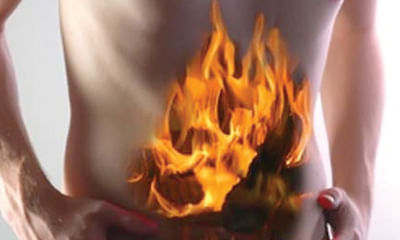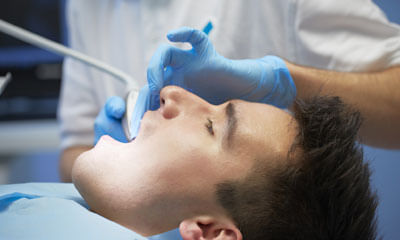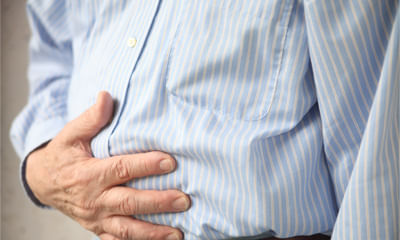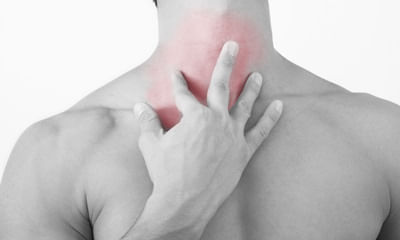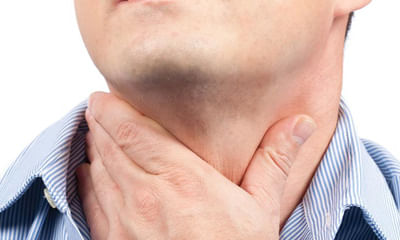Acid Reflux Gerd Symptoms
Bloating ,excess and little bit trouble swallowing and dysphagia. have too much acidity problem. This problem is from ma ...
Ask Free Question
Since you have this problem from long time, you have to change your lifestyle and add salads, fruits more liquids in your diet. For personalised treatment in ayurveda you can book appointment with us on Lybrate.
I have bloating problem and a little bit trouble swallowing in hard foods. Which get relax by burping .it has been many ...
Ask Free Question
Most belching is caused by swallowing excess air. This air most often never even reaches the stomach but accumulates in the esophagus. You may swallow excess air if you eat or drink too fast, talk while you eat, chew gum, suck on hard candies, drink carbonated beverages, or smoke. Some people swallow air as a nervous habit even when they're not eating or drinking.Acid reflux or gastroesophageal reflux disease (GERD) can sometimes cause excessive belching by promoting increased swallowing.
I can't tell whether I suffer from acid reflux or panic attacks. I randomly get painful stomach pain spreading to my che ...
Ask Free Question
Your symptoms could potentially be caused by various factors, including acid reflux or panic attacks. It's crucial to consult with a healthcare professional for an accurate diagnosis. Here are some considerations: acid reflux (gastroesophageal reflux disease - gerd): painful stomach pain spreading to the chest can be indicative of acid reflux. Lying down on your stomach might temporarily relieve symptoms as it can help prevent stomach acid from flowing back into the esophagus. Panic attacks: panic attacks can also cause chest pain, sweating, and a feeling of heat. The duration of 3 to 6 minutes aligns with the typical timeframe of a panic attack. Given the overlapping symptoms, it's crucial to seek professional medical advice. Your doctor may conduct a thorough evaluation, which could include a physical examination, medical history review, and possibly diagnostic tests. Additionally, if you experience sudden, severe chest pain or symptoms that mimic a heart attack, seek emergency medical attention immediately. Share your symptoms, including the details of your pain and any patterns you've noticed, with your doctor for an accurate diagnosis and appropriate management. If you have further concerns or questions, consider discussing them in a private message for a more detailed and tailored discussion.
I have hashimoto hypothyroidism and I am currently on thyronorm 75 mcg. I am facing low stomach acid, acid reflux, hair ...
Ask Free Question
"dear Lybrate user thanks for sending across your query. Pls get you ft3, ft4, tsh done to check weather levels are normal or you need to increase a decrease the dosage of medicine.
I am getting more saliva in mouth and I am chewing food so much time due to this saliva small meal also I am eating for ...
Ask Free Question
Unfortunately, I cannot diagnose medical conditions or recommend specific treatments. This information requires consultation with a qualified healthcare professional. However, I can offer some general information and suggestions that might help you understand your situation better and consider the next steps: possible causes of excessive saliva and difficulty swallowing: gastroesophageal reflux disease (gerd): this condition can cause stomach acid to back up into the esophagus, triggering excessive saliva production and difficulty swallowing. Dental issues: certain dental problems, like misaligned teeth or dentures that don't fit properly, can affect chewing and swallowing, leading to increased saliva and longer meal times. Neurological conditions: some neurological conditions like parkinson's disease or stroke can affect the muscles involved in swallowing, causing difficulty and slowness in the process. Anxiety or stress: these factors can also manifest physically, impacting saliva production and digestion. Tips for managing increased saliva and difficulty swallowing: maintain good oral hygiene: brush and floss regularly to ensure good mouth health and minimize irritation that might trigger excess saliva. Eat smaller, more frequent meals: this can help reduce the amount of food in your stomach at once, potentially making swallowing easier. Chew your food thoroughly: slower and more thorough chewing allows better food breakdown and mixing with saliva, facilitating easier swallowing. Maintain good posture: sitting upright while eating can improve swallowing mechanics. Consider stress management techniques: if anxiety or stress are influencing your symptoms, practicing relaxation techniques like deep breathing or meditation might be helpful. Recommendations: consult a doctor or gastroenterologist: they can conduct a thorough examination and recommend further tests, like endoscopy, to identify the underlying cause of your symptoms and provide appropriate treatment. Consult a dentist: if dental issues are suspected, a dentist can assess your oral health and suggest solutions to improve chewing and swallowing functionality. Seek mental health support: if anxiety or stress appear to be contributing factors, consider seeking professional help from a therapist or counselor. Remember, seeking professional medical advice is crucial for understanding the cause of your increased saliva and swallowing difficulties and receiving proper treatment. Don't hesitate to schedule consultations with relevant healthcare professionals to address your concerns and improve your well-being. I hope this information is helpful and encourages you to prioritize your health by seeking professional assistance.
Hello I am facing daily acid reflux, nausea and gas issue which is not yet resolved by lifestyle changes allopathy, ayur ...
Ask Free Question
Follow these herbal combinations for complete cure sootshekhar ras 1 tablet twice a day pittari avleh 10 gm twice a day.
I have acid reflux, bad breath and mouth odor, addicted to masturbation, lost of sperm and more than four keloid all ove ...
Ask Free Question
Follow this 1. Take your breakfast every day. Don't skip it. U should eat whatever your mother or grandparent eat in bfast. I mean to say whatever is your traditional food. If punjabi eat paratha, if belongs to south then take idli/ dosa etc. 2. Don't overeat 3. Don't take tea empty stomach. Eat something like a banana (if you are not diabetic) or any seasonal fruit or soaked almonds and a glass of plain water first thing in the morning (preferably within 10 mins of waking up). No only biscuits or rusk will not do. 4. Have light meals every 2 hours (in addition to your breakfast, lunch n dinner) e.g. Nariyal paani, chaach, a handful of mixed dry fruits, a handful of peanuts, any fresh n seasonal fruit (eat whole fruit not juice), a cup of curd/milk etc 5. Take simple food like rice n dal in dinner. Finish your dinner at least 2 hours before going to sleep. 6. Maintain active life style 7. Avoid fast foods, spicy n fried foods, carbonated beverages 8. Take a lot of green vegetables n fruit. 9. Drink lot of water. 10. Everyday preferably sleep on same time 11. Take 1tsp of ghee in bfast, lunch n dinner. Exercise in the form of yoga, cycling, swimming, gym etc.
Hi, my throat pains in morning when I wake up, when I drink water slowly after hour it gets ok, I consulted ent, he said ...
Ask Free Question
A granular congested pharynx, as described by your ent specialist, refers to inflammation and congestion of the pharyngeal mucosa (the lining of the throat). This condition is often associated with postnasal drip, which is the backward flow of mucus from the nose into the throat. The granular appearance may be due to enlarged lymphoid tissues or small bumps on the pharyngeal wall. The common symptoms of a granular congested pharynx include a sore throat, discomfort or pain while swallowing, and a feeling of irritation or scratchiness in the throat, particularly in the morning upon waking up. It may also be accompanied by symptoms related to postnasal drip, such as nasal congestion, runny nose, or cough. The treatment approach recommended by your ent specialist, such as prescribing tablets related to acidity, suggests that they are addressing potential underlying causes that can contribute to the symptoms. Acid reflux or gastroesophageal reflux disease (gerd) can irritate the throat and lead to throat discomfort. By managing acid reflux, it may help alleviate the symptoms associated with a granular congested pharynx. Additionally, your ent specialist may have prescribed medication to reduce inflammation and promote healing of the pharyngeal tissues. Following their prescribed treatment plan and taking the medication as directed should help alleviate your symptoms and promote recovery. However, if your symptoms persist or worsen despite the prescribed treatment, it is advisable to follow up with your ent specialist for further evaluation. They may consider additional tests or adjustments to the treatment plan based on your response and specific condition. Remember, it's essential to complete the full course of medication as prescribed and follow any lifestyle recommendations provided by your healthcare professional. If you have any questions or concerns about your condition or the prescribed treatment, don't hesitate to reach out to your ent specialist for clarification.
I do not know what is happening with me. Most probably it happens more after eating but it also happens without eating a ...
Ask Free Question
Hi lybrate-user! based on the symptoms you have described, it is possible that you are experiencing some form of gastroesophageal reflux disease (gerd) or acid reflux. This occurs when stomach acid flows back up into the esophagus and can cause a variety of symptoms, including the feeling of air pressure in the throat and mouth, as well as bloating and loss of appetite. However, it is important to note that there could be other potential causes of your symptoms, such as anxiety, stress, or even a problem with your teeth or gums. Avoid trigger foods (such as caffeine, alcohol, and spicy foods), eating smaller meals, avoiding lying down after eating, and maintaining a healthy weight. You may also want to try over-the-counter antacids or acid reducers, but be sure to talk to your doctor before taking any new medications.
If i'm feeling something stuck in my throat after I finish eaten and it's making my heart beating fast and the symptoms ...
Ask Free Question
Feeling something stuck in the throat and rapid heart rate after eating may be due to several reasons such as gastroesophageal reflux disease (gerd), esophageal spasms, or even anxiety. It is recommended to see a doctor for a proper diagnosis and treatment. To alleviate the symptoms, you can try the following: eat smaller, more frequent meals throughout the day instead of large meals. Avoid eating within two to three hours of bedtime. Avoid trigger foods such as spicy or acidic foods, caffeine, and alcohol. Drink plenty of water to help wash down food and improve digestion. Try chewing gum after meals to stimulate saliva production, which can help neutralize stomach acid. Elevate the head of your bed by 6-8 inches to help prevent stomach acid from flowing back up into the esophagus while you sleep. Practice stress-reducing techniques such as deep breathing, meditation, or yoga, as stress can exacerbate symptoms. Again, it is important to consult a doctor for proper diagnosis and treatment. Feel free to consult me regarding this. Message me on whatsapp +mobile. My consultation fee is only rs. 50! take care. Wish you health.


